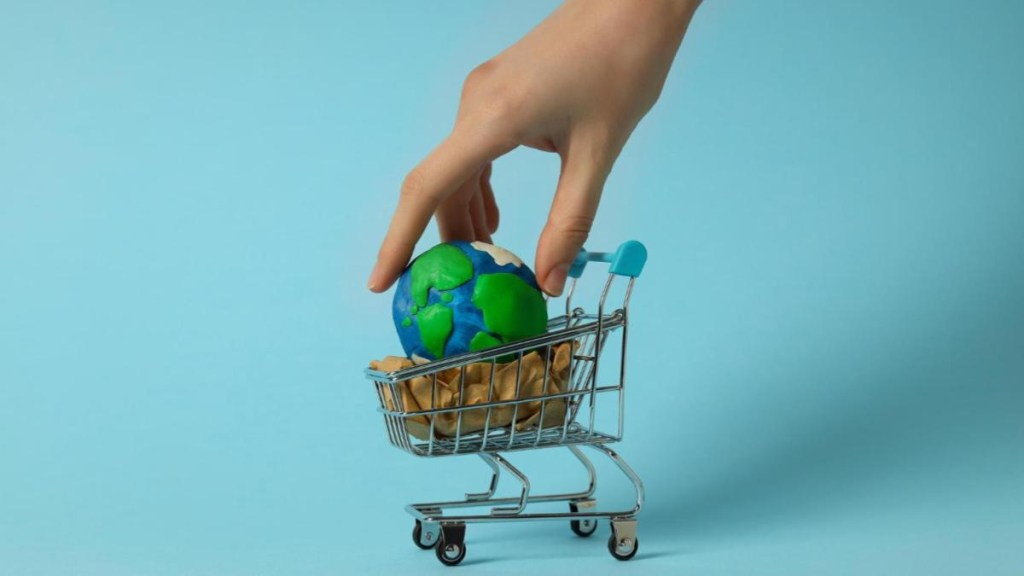Sustainability in business practices is now seeping down into the retail experience as well. Brands such as Apple, Pizza Hut and Puma are making efforts to go green in their stores too by reducing energy costs, providing energy-efficient lighting, internet of things (IOT) solutions and improving air quality in store design.
Apple’s BKC store in Mumbai and Saket, Delhi, store launched last year are carbon-neutral. The Bandra Kurla Complex (BKC) store has a glass facade to allow natural light, and is designed to be one of the most energy-efficient Apple stores in the world, powered by 100% renewable energy and featuring energy-efficient lighting with solar arrays. Apple decreased its carbon footprint by 4.3 million metric tonne in 2019 through design and recycled content innovations in its products. Over the past one decade, Apple has reduced the average energy needed for product use by 73%. In 2019, Apple invested in energy efficiency upgrades to over 6.4 million square feet of new and existing buildings, lowering electricity needs by nearly one-fifth and saving the company $27 million.
Pizza Hut recently opened a ‘sustainable’ store in Mumbai.
Opened under its global mission of ‘Recipe for Good Growth’ that prioritises people, the planet and food, this initiative is one of the many steps taken by Pizza Hut to help Yum! Brands—which operates KFC, Pizza Hut, Taco Bell—to reach net-zero emissions by 2050.
The restaurant in Mahim integrates energy efficiency, use of responsible materials and wastewater management, solar plant installations, energy management system (EMS) to monitor and control power usage and a rainwater harvesting system, saving not only on costs, but reducing carbon footprint by 35-50%. “We acknowledge the pressing need for sustainable growth. As of H1 2023, 40% of our new openings prioritise sustainability with matching initiatives like 100% removal of single-use plastic,” said Asif Mahmud, chief development officer, Pizza Hut, Yum! Restaurants India.
“Retailers are responding to various eco-friendly initiatives such as the establishment of zero-waste stores, reducing packaging waste and promoting use of reusable materials. Carbon-neutral stores are emerging with retail spaces using renewable energy sources and carbon offsetting initiatives. Even the adoption of electric vehicles is becoming prevalent, contributing to a reduction in carbon emissions. This has been made possible by integration of AI and data analytics in retail operations by reducing waste and optimising inventory management,” said Shailesh Tyagi, partner, climate change & sustainability leader, consulting, Deloitte South Asia.
Puma is improving indoor air quality and energy efficiency for a sustainable in-store shopping experience using Internet of Things (IoT) solutions and artificial intelligence (AI). It has received air quality certification for its five stores in Lucknow, Connaught Place in Delhi, Dahisar in Mumbai, CBD Belapur in Navi Mumbai and Raj Nagar, Ghaziabad from accredited Indian testing lab NABL. With additional 80 stores in the pipeline, the innovative IoT solutions will be implemented elsewhere too. “Our investment in this technology is a reflection of the commitment to operate smart, sustainable retail outlets in India,” said Vishal Gupta, executive director, retail, Puma India.
Amazon has more than 6,000 EVs (electric vehicles) in its India delivery fleet making deliveries in more than 400 cities. The brand plans to deploy 10,000 EVs in India by 2025.
Reliance Retail in 2022-23 opened over 3,000 stores and invested Rs 12.14 crore on various energy conservation initiatives like efficient HVAC equipment, etc, at stores.
